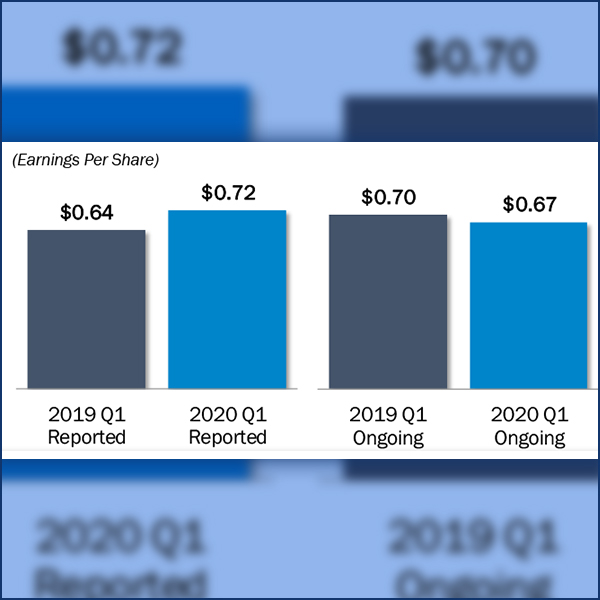MISO’s plan to crop some load-modifying resources’ capacity credits remains unpopular with many stakeholders, prompting the RTO to postpone the new accreditation for a year.
Scott Wright, Resource Adequacy Subcommittee liaison, announced during a conference Wednesday that the new accreditation approach will be pushed to the 2022/23 planning year beginning June 2022.
MISO Director of Resource Adequacy Coordination Zakaria Joundi said the RTO would still file with FERC for the changes this month, adjusting the effective date for 2022 instead of 2021.
“So next year, there will be no change; the current methodologies will stay the same. But starting [the year after], you’ll begin to see some changes,” Joundi told stakeholders.
MISO plans to set an LMR’s capacity accreditation at either an average of its actual availability over a three-year period or its tested availability, whichever is less. LMRs that can respond more often and with shorter lead times will receive a larger capacity credit; those that can respond in six hours or less to 10 or more calls per year will receive a full capacity credit.
Last month, MISO eased its proposal to eliminate the capacity credits of LMRs with lead times greater than six hours, offering them a 50% capacity credit for two years if they can respond to at least 10 calls in a year. The RTO maintains that LMRs needing more than six hours’ notice don’t help mitigate emergency conditions. (See MISO Offers Concession on LMR Capacity Credit Plan.)
Beginning in the 2023/24 planning year, MISO will no longer offer any capacity credits for LMRs with six hours or greater lead times or that cannot respond to at least five calls in a planning year, Joundi said.
In spite of last month’s revision, stakeholders overwhelmingly voted to postpone the new accreditation via an email ballot that closed April 15.
Energy counsel Jim Dauphinais, on behalf of the Louisiana Energy Users Group, said a 2021/22 planning year effective date “does not provide sufficient time for action to be taken to avoid a potentially large unnecessary exit of capacity from the MISO market.”
Gabel Associates’ Travis Stewart asked if MISO expects LMR owners to use the extra year to make modifications to be more available or simply expects them to collect another year’s worth of capacity credit.
“If MISO can’t depend on them, then the accreditation should show up immediately,” Stewart said.
Joundi said the additional year will allow load-serving entities to reopen LMR contract provisions to either amend availability times or revise the number of calls to which resources are willing to respond.
“It’s more about administration … and less about technology,” he said.
MISO said it “encourages stakeholders that can obtain reductions in notification times or increase call limits to do so prior to the 2022/23 planning year,” especially for LMRs in local resource zones that rely more heavily on load modification.
Some stakeholders agreed, saying the more immediate change would cause some demand response to abandon the MISO capacity market.
WEC Energy Group’s Chris Plante asked MISO to first perform loss-of-load-expectation analyses to measure the benefit of a reduced LMR capacity credit.
“We believe that LMRs with lead times greater than six hours, but less than 12 hours, provide some reliability value and should receive some amount of credit after 2023,” Plante said in comments to the RTO.
Other stakeholders again asked MISO to wait and see how new LMR rules work out before proposing a new LMR capacity accreditation. FERC early last year allowed MISO to require LMRs to offer capacity in accordance with a seasonal availability report provided to the RTO and commit to deploying based on a notification time no longer than 12 hours. (See MISO LMR Capacity Rules Get FERC Approval.)
“MISO should allow the impacts of the changes from 2019 to be studied before making these additional changes. Furthermore, any additional changes to LMRs should be done as part of the larger resource accreditation effort to be undertaken by MISO and not in this piecemeal, one-off, incremental approach,” Vectren’s Michelle Quinn said.
MISO this year will pursue a rethink of all other resource accreditation, saying its current approach results in “inequitable treatment among resource types providing different levels of reliability contribution.”
“We definitely want to show stakeholders what’s clearing in the Planning Resource Auction versus what is showing up in the MISO Communications System. I think that’ll give transparency into what’s available to our operators when conditions may be tight,” planning adviser Davey Lopez said. Once cleared in the capacity auction, MISO’s planning resources use the Communications System to convey their availability to the grid operator.





